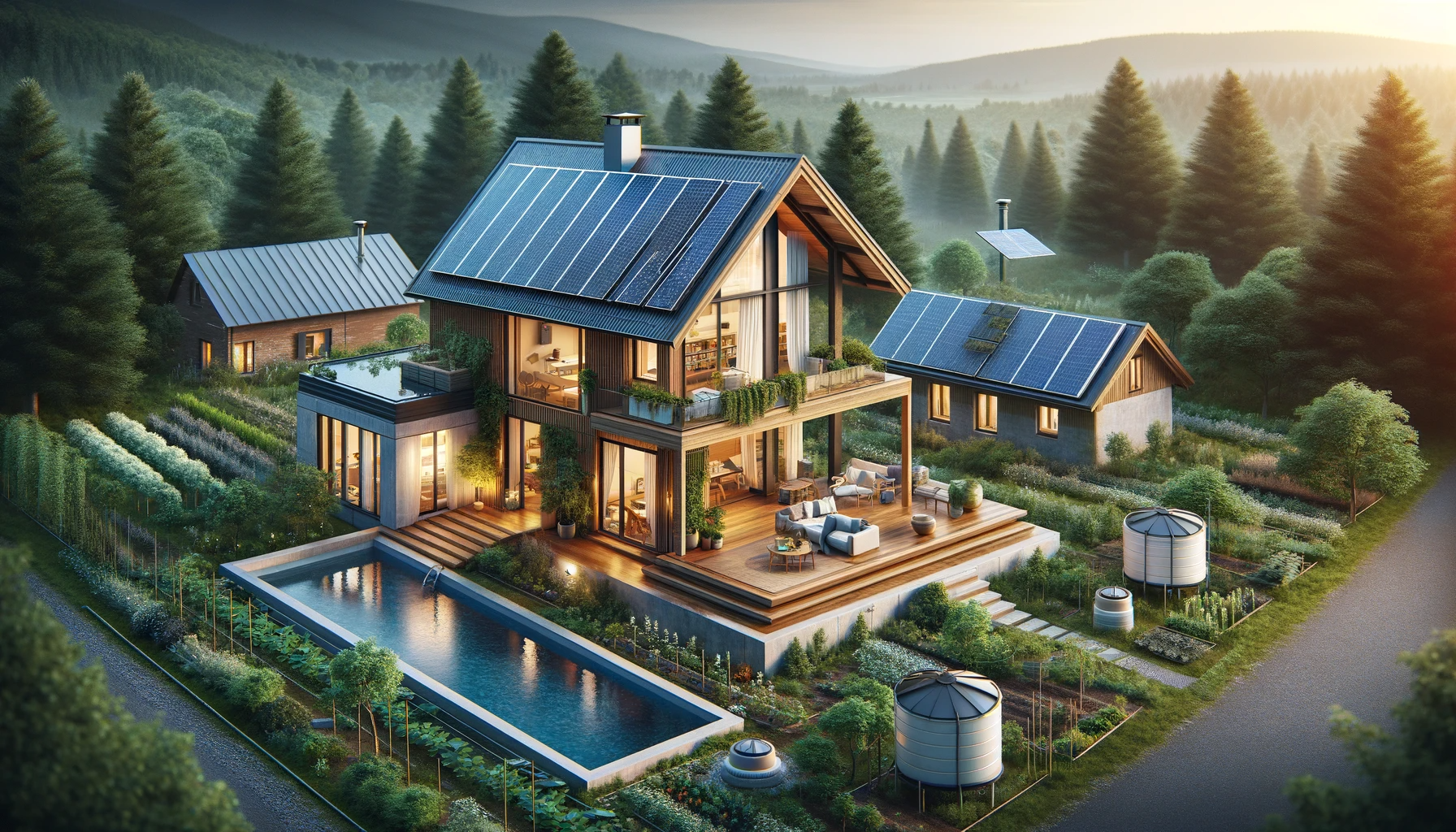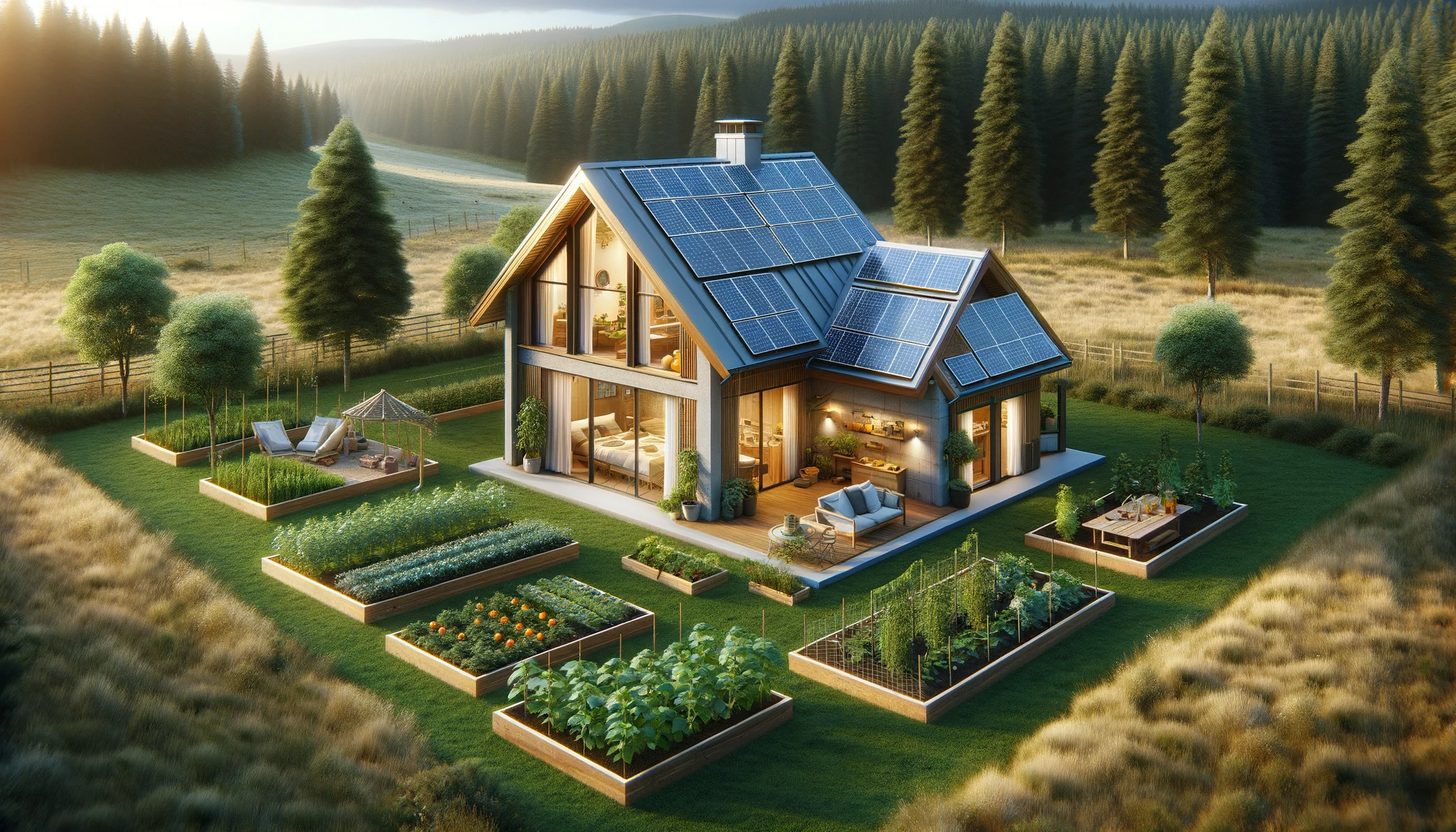Off-grid living: tips and hints for sustainable living
 Dec 22,2023
Dec 22,2023

 Basen
Basen
Embracing Self-Sufficiency and Sustainability
Off-grid living is about more than just independence from utility services; it's a lifestyle choice that embraces sustainability and self-sufficiency. This blog explores practical tips and tricks for those interested in or currently living off-grid, ensuring a harmonious balance with nature while enjoying the comforts of modern life.
Understanding Off-Grid Fundamentals
Living off-grid means different things to different people, but the core idea is to disconnect from public utilities and create a self-sufficient lifestyle:
- Energy Sources: Solar panels, wind turbines, and hydroelectric systems are popular renewable options.
- Water Supply: Rainwater harvesting, wells, and natural springs can provide a sustainable water source.
- Waste Management: Composting toilets and greywater systems are eco-friendly solutions for waste disposal.

Energy Efficiency: The Heart of Off-Grid Living
Energy efficiency is crucial in off-grid setups:
- Energy-Efficient Appliances: Opt for appliances designed for low power consumption.
- Insulation and Passive Solar Design: Proper insulation and strategic window placement can significantly reduce energy needs for heating and cooling.
- LED Lighting: Switch to LED lights, which consume less power and last longer.
Sustainable Food Sources
Growing your own food is not only rewarding but also environmentally friendly:
- Gardening and Permaculture: Develop a sustainable garden or adopt permaculture principles to grow food.
- Preserving Food: Learn canning, drying, and other food preservation methods for year-round supply.
- Raising Livestock: If space allows, consider raising chickens or goats for eggs and dairy.
Water Conservation and Management
Water is a precious resource in off-grid living:
- Water-Saving Fixtures: Install low-flow faucets, showerheads, and toilets.
- Irrigation Techniques: Use drip irrigation or soaker hoses for efficient watering of plants.
- Rainwater Collection: Set up a system to collect and store rainwater for household and gardening needs.
Building a Resilient and Comfortable Home

Off-grid doesn't mean uncomfortable:
- Alternative Building Materials: Explore sustainable materials like straw bales, earthbags, or reclaimed materials.
- Solar Cookers and Wood Stoves: Use solar cookers for sunny days and wood stoves for heating and cooking in colder weather.
- Natural Cooling: Utilize natural ventilation and shading to keep your home cool without air conditioning.
Community and Networking
Building a supportive community is key:
- Learning from Others: Connect with other off-grid enthusiasts for advice and support.
- Workshops and Forums: Attend workshops or join online forums to learn new skills and share experiences.
Conclusion: A Rewarding Journey to Self-Sufficiency
Living off-grid is a journey of learning, adaptation, and connection with nature. It offers a fulfilling path towards a sustainable lifestyle, balancing modern comforts with ecological responsibility. By embracing these tips and tricks, you can make your off-grid living experience both sustainable and enjoyable.








 HOME
HOME Off-Grid Living for Beginners: The Ultimate Guide
Off-Grid Living for Beginners: The Ultimate Guide  You May Also Like
You May Also Like

 Tel
Tel
 Email
Email
 Address
Address